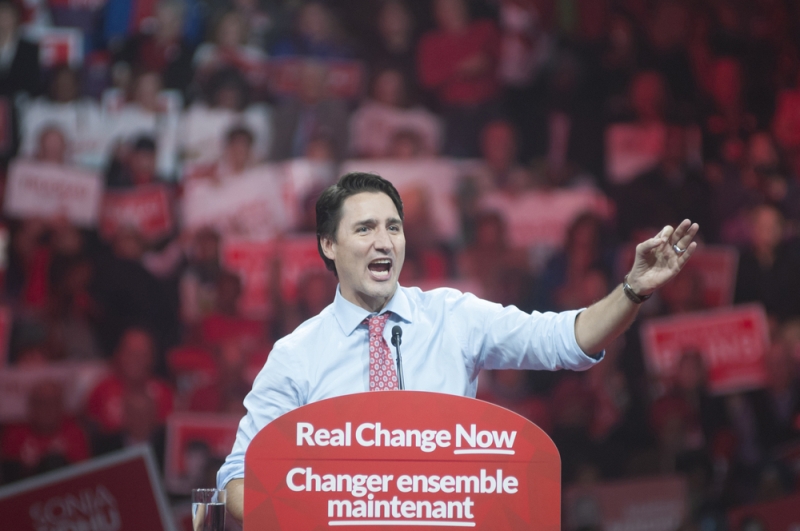
The election of a new—and Liberal—Canadian prime minister could signal a new era in drug policy for the country.
Justin Trudeau’s election on Tuesday brings an end to nine years of Conservative Party rule. While the Conservative Party resisted the use of supervised injection facilities, opposed marijuana reform, and maintained a commitment to mandatory minimum sentences, the Liberal Party platform includes legalizing marijuana and supporting harm reduction efforts.
Last month, in response to questions from a coalition of Canadian drug policy reform advocates, the Liberal Party wrote, “The Liberal solution is clear: If we pass smart laws that tax and strictly regulate marijuana, we can better protect our kids, while preventing millions of dollars from going into the pockets of criminal organizations and street gangs.”
If Trudeau sticks to the party line, then Canada could soon become the second country to fully legalize the production, sale, and consumption of pot, according to the Drug Policy Alliance. Previously, Uruguay legalized weed in 2013.
In terms of harm reduction, Trudeau has expressed support for supervised injection facilities. Currently, Vancouver is home to Insite, the only safe injection site in North America.
American drug policy reformers have already spoken out in support of the change to the north.
“[Monday’s] victory for Justin Trudeau and the Liberal Party is the single biggest news in global drug policy reform this year,” Drug Policy Alliance Executive Director Ethan Nadelmann, said in a press release Tuesday. “It promises a 180 degree turn in Canada’s national drug policy both domestically and internationally, and will hopefully inject new energy and direction into planning for the UN General Assembly Special Session (UNGASS) on Drugs six months from now.”
The last time UNGASS met was in 1998, at which point the group advocated for a “drug-free world.” If the new tone in Canadian politics holds any sway, the takeaway from next year’s meeting could be very different.
